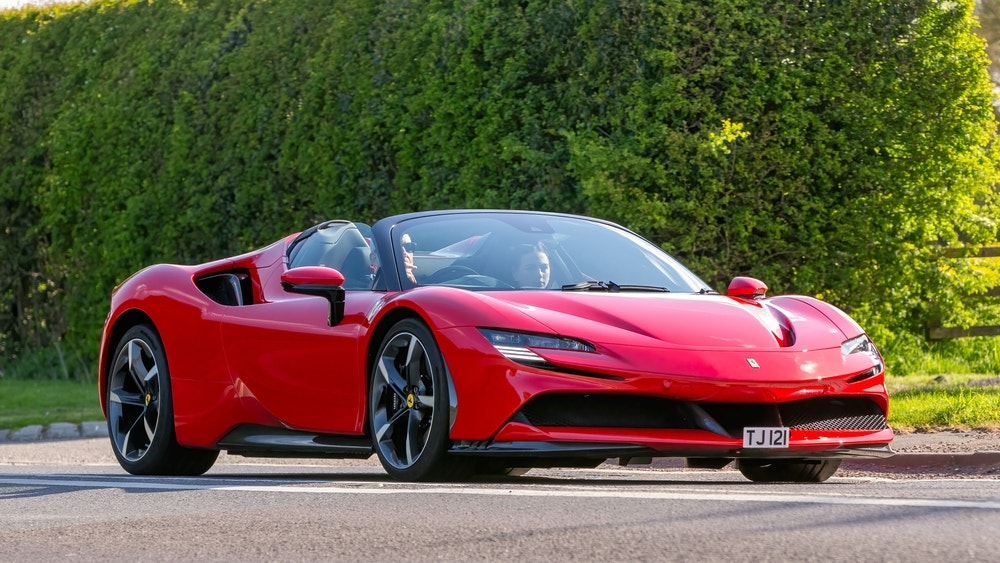
A 25% tariff on imported cars is revving up the pressure on European luxury automakers, and high-end buyers in the U.S. could face five-figure price hikes, according to Tim Urquhart, principal automotive analyst at S&P Global Mobility.
President Donald Trump said on April 10 that his administration would enforce a 25% tariff on imported vehicles as part of his broader “reciprocal trade” policy, though he has since suggested he may delay the move.
While some tariffs were delayed for 90 days, this particular levy stayed in place — and it’s hitting the ultra-luxury market hard.
Don’t Miss:
Ferrari announced last month that it would increase the prices of nearly all of its models sold in the U.S. by up to 10%. The hike applies even to vehicles ordered months prior, including the newly released Purosangue SUV and the 12 Cilindri grand tourer built in Maranello, Italy.
Urquhart told Business Insider, “It’s very bad news. There’s no getting around that. Ferrari, Bentley, and Rolls-Royce are in a tough spot — they can’t absorb a 25% tariff, so that will have to be passed on to customers.”
Urquhart added that ultra-luxury brands have more pricing flexibility than mass-market automakers due to their premium sticker prices.
Rolls-Royce, a subsidiary of BMW, is still assessing the situation. Bentley, owned by Volkswagen AG, will continue U.S. imports but hasn’t decided on pricing adjustments.
Trending: The secret weapon in billionaire investor portfolios that you almost certainly don’t own yet. See which asset class has outpaced the S&P 500 (1995-2024) – and with near-zero correlation.
Other European automakers are adjusting quickly. Jaguar Land Rover — owned by India’s Tata Motors — temporarily halted U.S. shipments to evaluate the impact.
Audi, a Volkswagen subsidiary, was holding deliveries at U.S. ports as it weighed the next steps, according to Automotive News.
Mercedes-Benz is also reevaluating its lower-end lineup. As reported by Bloomberg, Mercedes may pull some of its entry-level models from the U.S. market due to profitability concerns.
While several automakers posted strong sales gains in March, Porsche reported its best-ever first quarter in the U.S., with Q1 2025 sales jumping 40.6%. The company credited strong demand for the 911 and Macan models for the record growth.
